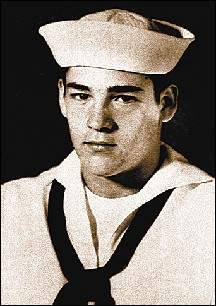A Happy New Year With Some Good News
Almost all stories in the press and on the internet are negative or involve complaints about some issue. It’s therefore a pleasure to start the new year with two good-news stories for a change.
Saving Iraqi baby a new mission for U.S. troops
Georgia National Guard to bring baby Noor to U.S. for surgery
BAGHDAD, Iraq (CNN) -- When troops from the Georgia National Guard raided a Baghdad home in early December, they had no idea that their mission in Iraq would take a different turn.
As the young parents of an infant girl nervously watched the soldiers search their modest home, the baby's unflinching grandmother thrust the little girl at the Americans, showing them the purple pouch protruding from her back.
Little Noor, barely three months old, was born with spina bifida, a birth defect in which the spinal column fails to completely close. Iraqi doctors had told her parents she would live only 45 days. But she was tenaciously clinging to life, and the soldiers in the home -- many of them fathers themselves -- were moved.
"Well, I saw this child as the firstborn child of the young mother and father and really, all I could think of was my five children back at home and my young daughter," Lt. Jeff Morgan told CNN from Baghdad. "And I knew if I had the opportunity whatsoever to save my daughter's life I would do everything possible.
"So my heart just kind of went out to this baby and these parents who ... were living in poverty and had no means to help their baby. I thought we could do that for them," he added.
So Morgan and his fellow soldiers began working to get Noor the help she needs.
"We ... collectively decided this is going to be our project," said Sgt. Michael Sonen. "If this is the only contribution we have to defeating the war on terrorism, this is going to be it."
The soldiers brought Noor to a U.S. military base for medical examinations and got friends and charities in the United States to help get her the surgery that could save her life.
Sen. Saxby Chambliss of Georgia and his office are working to speed up the process of getting a visa for Noor's grandmother, who will accompany her to Atlanta.
Dr. Roger Hudgins, the chief of neurosurgery at Children's Healthcare of Atlanta, has promised to perform the delicate operation for free.
The doctor told CNN the surgery needs to take place soon.
"We need to get the back closed," Hudgins said. "The concern here is meningitis. If the baby gets an infection on the back, that infection can spread to the coverings all over the brain and the baby may die, so time is of the essence."
Spina bifida, often called open spine, is a birth defect that occurs during the first month of pregnancy when the spinal column fails to close completely.
It affects the backbone and sometimes the spinal cord itself, often causing permanently disabling defects, particularly neurological damage.
It is the most common such birth defect -- known as neural tube defects -- and affects about 1,500 to 2,000 babies born in the United States each year, according to the March of Dimes.
Some 70,000 people in the United States are living with spina bifida, according to the Spina Bifida Association.
There are three types of spina bifida. Baby Noor has the most severe type, in which the spinal cord's protective covering and the spinal nerves come through the opening in the spine.
The neurological damage that can come from this type includes full or partial paralysis, bladder and bowel control difficulties, learning disabilities and depression.
Sonen said Noor already has lost feeling in her feet.
Recent studies have shown that folic acid, taken before pregnancy and during the first trimester, can reduce the incidence of spina bifida.
Dr. Hudgins said that while the surgery will probably help baby Noor, there's no guarantee that it will cure her of her condition.
"Our hope and expectation ... is that we can get the child through the surgery and save the life, then we can work on the quality of life," he said.
Back in Baghdad, the news that Noor's journey may happen soon is heartening for both her family and the soldiers who have become involved.
"This just gives ... the courageous men of Charlie Company, it gives them a focal point outside of the normal day-to-day routine of trying to catch the insurgency," Morgan said. "It gives them something even more positive to focus on."
The lieutenant said that while his unit's main mission is to put down the insurgency in Iraq, it is also trying to help the country's citizens.
"We are also here to win the hearts and minds of the Iraqi people. To show them that we are a just people, not only by helping them establish a constitution but helping them with their problems that they cannot handle," Morgan explained. "This little girl epitomizes the efforts of us to do that."
But for all of their help, the soldiers realize they're also possibly endangering the little girl and her family.
"We are always concerned that talking to anybody longer than a normal conversation will put them in danger," said Sgt. Archer Ford.
"We did a lot of things to protect the identity of these people," Morgan said.
"We visited them when we could, which was usually in the middle of the night, as covertly as possible," he added. "Because the insurgents in Iraq like to find people that we're trying to help sometimes and either terrorize them or sometimes worse."
Commandments display is upheld
No religious intent in Mercer, court says
Wednesday, December 21, 2005
By Peter Smith
psmith@courier-journal.com
The Courier-Journal
A federal appeals court has upheld a display of the Ten Commandments alongside other historical documents in the Mercer County, Ky., courthouse.
The judge who wrote the opinion blasted the American Civil Liberties Union, which challenged the display, in language that echoed the type of criticism often directed at the organization.
Judge Richard Suhrheinrich's ruling said the ACLU brought "tiresome" arguments about the "wall of separation" between church and state, and it said the organization does not represent a "reasonable person."
The decision was issued by a three-judge panel of the 6th U.S. Circuit Court of Appeals, based in Cincinnati. It upheld a lower-court decision that allowed Mercer County to continue displaying the Ten Commandments along with the Declaration of Independence, the Bill of Rights, the words to "The Star-Spangled Banner" and other documents.
All of the items were posted at the same time in 2001.
Identical displays were ruled unconstitutional in Kentucky's McCreary and Pulaski counties by the U.S. Supreme Court earlier this year. The high court said officials there spoke of their religious intentions, and they also put up the displays only after previous ones -- a stand-alone exhibit of the Ten Commandments and another display of religious-themed documents -- were challenged.
In the Mercer County case, the appeals court said there was no evidence that the county had a religious purpose in posting its display. And the Ten Commandments document is not more prominent than the others, the court said.
"It's a big win for the people of Mercer County who've been told for a long time they don't know what they're doing when it comes to this type of issue," said Bardstown lawyer Francis Manion of the conservative American Center for Law and Justice, which represented the county.
David Friedman of the ACLU of Kentucky said he's disappointed and will consult with the plaintiff about whether to seek review by the full 6th Circuit or the Supreme Court.
He said the Mercer County display is "thinly disguised" as historical.
"I don't think anyone understanding the context -- (with the display) put up in midst of the McCreary County litigation -- seriously thinks anyone was trying to teach history," Friedman said. "They were looking for a way to get the Ten Commandments on the wall."
But he acknowledged the ruling's impact in the 6th Circuit, which includes Kentucky, Ohio, Tennessee and Michigan. "At this point in this circuit, it means that this particular display is lawful without proof of (religious) intent," he said.
He also said officials should not be allowed to post religious documents just because they don't state religious intentions.
"You ought to have a bright-line rule that simply forbids government from doing these sorts of things, rather than getting into an unappealing choice of court saying, 'Government, you're a liar,' or 'We'll believe you simply because you said it,' " he said.
The opinion by Suhrheinrich was joined by Judge Alice Batchelder. Judge Walter Rice concurred with the ruling but didn't join in the written opinion.
Suhrheinrich wrote that a court has to decide whether a "reasonable person" would find that a government display endorses religion, not whether someone finds it offensive. He said the ACLU "does not embody the reasonable person."
He criticized the organization for arguing that the First Amendment mandates a "wall of separation between church and state."
"Our nation's history is full of governmental acknowledgment and in some cases accommodation of religion," the judge wrote.
Friedman declined to respond to those criticisms, saying only that he disagrees with the court's legal reasoning.
But one supporter of the ACLU called the ruling's language inappropriate.
"It's unfortunate that a federal court would go out of its way to speak disparagingly of any group before it," said Sam Marcosson, a University of Louisville law professor who has cooperated with the ACLU in an unrelated case.
He said it's one thing to criticize a group's position as "wrong-headed" but another to launch a personal attack.
The lawyer representing Mercer County said the ruling was welcome.
"For too long (Kentuckians) have been lectured like children by those in the ACLU and elsewhere who claim to know what the people's Constitution really means," Manion said in a statement. "The court recognizes that the Constitution does not require that we strip the public square of all vestiges of our religious heritage and traditions."
Two state representatives -- Rick Nelson, D-Middlesboro, and Stan Lee, R-Lexington --have filed bills for the next session of the General Assembly that are intended to expand public displays of the Ten Commandments. They said yesterday's ruling can only help.
Nelson said, "It's a common-sense ruling" that reflects "what a lot of people have said all along."
AND FINALLY TO SUM UP 2005:
Who were the Big Winners of 2005? It sounds terribly earnest and formulaic to say "the Iraqi people"--so let's include them among the broader class of "new democrats." Indeed, the past year saw historic elections not just in Iraq, but also in Palestine, Lebanon, Afghanistan, and Egypt. The reformist germ even touched Saudi Arabia, which allowed municipal elections, and Kuwait, which granted women the right to vote and run for public office. According to Freedom House, the "modest but notable" advance of liberty in the Arab Middle East was "the most significant development" cited by its annual survey of world freedom in 2005. The top news, of course, came out of Iraq, where the number of Iraqis braving bombs and bullets to make it to the polls climbed from 8.5 million in January, to 9.8 million in October, to some 11 million in December.















